149 years ago today, the British hunter, naturalist, and author, Jim Corbett was born. He was often hired by various Indian legislatures to hunt man-eating Bengal tigers and leopards. He became so well-versed in the mysteries and magic of India’s jungles that he helped create the nation’s first national park, renamed Corbett National Park in his honor. READ more about his philanthropy and legacy… (1875)
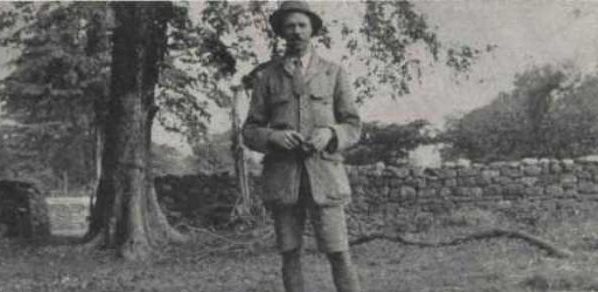
Corbett achieved international success with a writing career about his adventures in India, starting with Man-Eaters of Kumaon, More Man-Eaters of Kumaon, and The Man-Eating Leopard of Rudraprayag. However, it also fostered a deep profound love of India, her people, and her wildlife, which he tirelessly details throughout his works. He dedicated his book My India to “…my friends, the poor of India” writing “It is of these people, who are admittedly poor, and who are often described as ‘India’s starving millions’, among whom I have lived and whom I love, that I shall endeavor to tell in the pages of this book, which I humbly dedicate to my friends, the poor of India.”
He killed over a dozen man-eating tigers, who between them may have killed and eaten as many as 1,400 people. A particular leopard was said to have killed 400 villagers alone.
In 1920s he and a friend began shooting tigers with photography equipment rather than rifles. His extensive knowledge of the jungle, evidenced in his books Jungle Lore, and Jungle Stories, allowed him to find the shy creatures. Corbett played a key role in establishing India’s first national park, which was eventually renamed Corbett National Park in his honor, and for his advocacy on behalf of the wildlife of India.
MORE Good News on this Day:
- Another section of the Sinai Peninsula was peacefully returned by Israel to Egypt (1979)
- After generations of hostility, Jordan’s King Hussein and Israeli Prime Minister
- Lance Armstrong won his first Tour de France, after being given the grave diagnosis of testicular cancer (1999)
- Pratibha Patil was sworn in as India’s first woman president (2007)
Also, on this day in 1978, English-born Louise Joy Brown became the first human to be born after conception by in vitro fertilization.
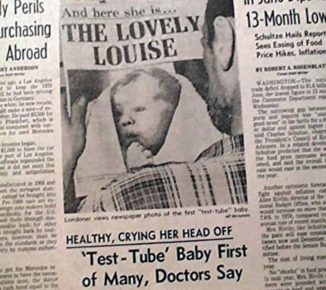
Her parents, Lesley and John Brown, had been trying to conceive for nine years after maternal complications from blocked fallopian tubes. The year before giving birth at Oldham General Hospital, she underwent a procedure developed by Patrick Steptoe and Robert Edwards—who was awarded the 2010 Nobel Prize in Medicine for this work. Although the media referred to Brown as a “test tube baby”, her conception actually took place in a Petri dish.
And, on this day in 1965, folk singer Bob Dylan walked onstage at the Newport Folk Festival, plugged in his 1964 Fender Stratocaster and “went electric,” tearing into the song “Maggie’s Farm.” Although some folkie audience members booed, nothing would stop the leather-clad Dylan from becoming one of rock’s rebel geniuses. Dylan, who was expected by fans to ‘save’ folk music from being overtaken by rock-and-roll, would later say that he was already a fan of The Beatles and the first time he heard them he knew “they were pointing to the direction where music had to go.” …WATCH the moment below… (Learn More in these books and videos.)
And, 34 years ago today, Diana, Princess of Wales, used her royal clout to officially open the new AIDS Center in London. Much to the chagrin of the Queen, who wanted her to support “something more pleasant”, she arrived at the Landmark Aids Centre, which offers treatment and support for HIV/AIDS patients, and gave director Jonathan Grimshaw — diagnosed HIV positive — a firm handshake before touring the building. She was not averse to making physical contact with the patients, though it was early in the history of the epidemic, and no one knew how the disease was spread—and police still wore rubber gloves when dealing with patients.
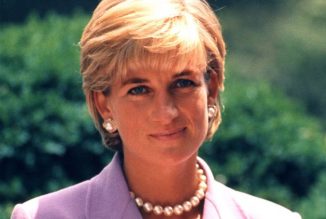
Diana first attempted to de-stigmatize the condition as a high-profile member of the Royal Family two years earlier when she held hands with and hugged a patient while officially opening the new ward at Middlesex Hospital, the first such unit dedicated to this cause in the UK. “HIV does not make people dangerous to know. You can shake their hands and give them a hug. Heaven knows they need it. What’s more, you can share their homes (and) their workplaces.”
Princess Diana later established and led fundraising campaigns for AIDS research and was a patron of the National AIDS Trust.
A few months before her death, it was announced that she had teamed up with President Nelson Mandela and his Children’s Fund to help AIDS victims—and Mandela later praised her saying, “When she stroked the limbs of someone with leprosy or sat on the bed of a man with HIV/AIDS and held his hand, she transformed public attitudes and improved the life chances of such people.” (1989)
44 years ago today, AC/DC released their seventh studio album Back In Black—the first since the death of the Australian band’s lead singer Bon Scott.
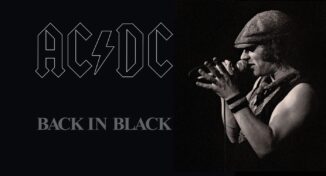
With an all-black cover as a sign of mourning for Scott, the album was an unprecedented success, with hits like Hells Bells and You Shook Me All Night Long.
With sales certified 25-times Platinum—and an estimated 50 million copies sold worldwide to date—it became “the biggest selling hard rock album ever made”. WATCH Brian Johnson sing the huge title track in their music video… (1980)
27 years ago today, K.R. Narayanan was sworn in as President of India, fulfilling Gandhi’s dream by becoming the first leader from an “untouchable” caste.
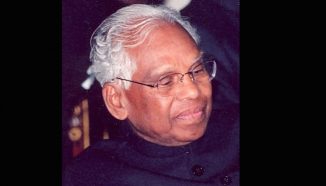
In his inaugural, after receiving 95 percent of the votes in the Electoral College, he said:
“That the nation has found a consensus for its highest office in someone who has sprung from the grassroots of our society and grown up in the dust and heat of this sacred land is symbolic of the fact that the concerns of the common man have now moved to the center stage of our social and political life.”
He previously served as India’s ambassador to multiple countries and was referred to by Nehru as “the best diplomat of the country”. He described himself as a “working president” and urged the public to struggle against power corporations and militarism and fight those aspects of globalization that were against the interests of the people. (1997)
SHARE the Milestones, Memories, and Music…




















[…] post Good News in History, July 25 appeared first on Good News […]
[…] Good News in History, July 25 […]
[…] Lance Armstrong won his first Tour de France, after being given grave diagnosis of testicular cancer (1999) […]
[…] Posted From: https://www.goodnewsnetwork.org/events060725/ […]
[…] post Good News in History, July 25 appeared first on Good News […]
[…] post Good News in History, July 25 appeared first on Good News […]